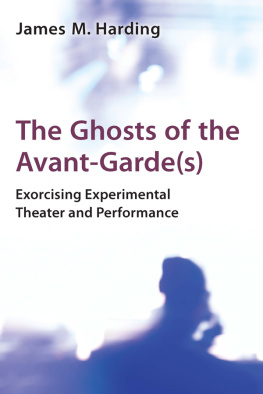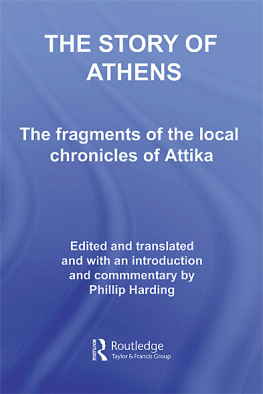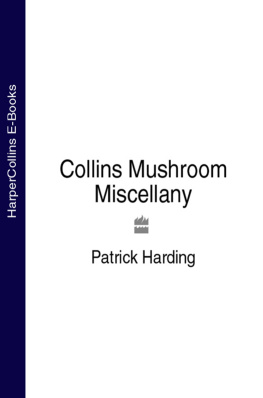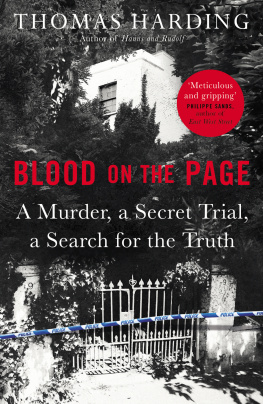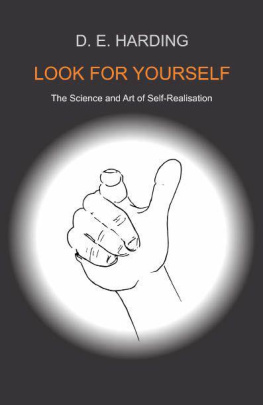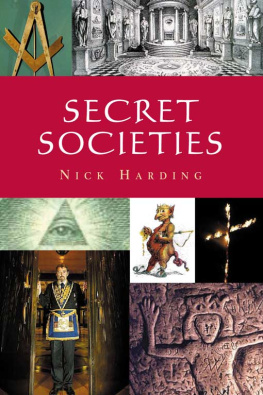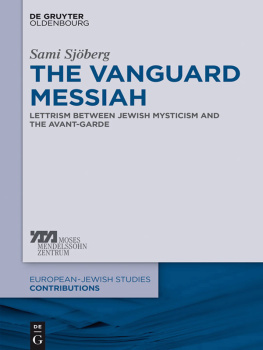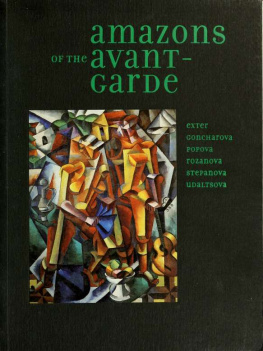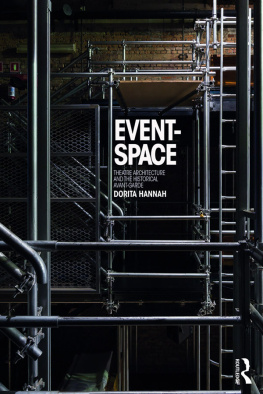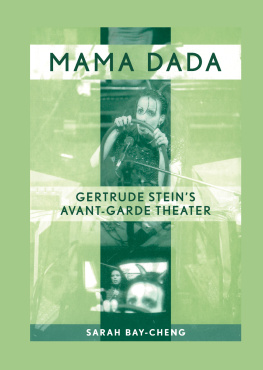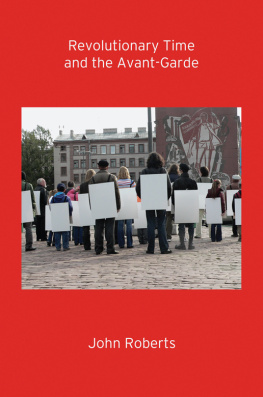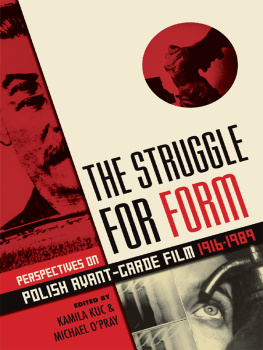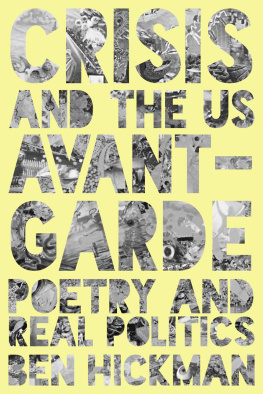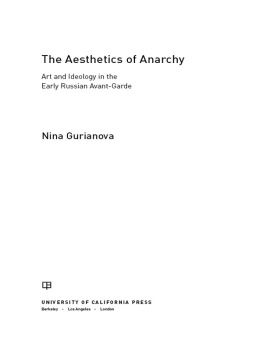Harding - The ghosts of the avant-garde (s) exorcising experimental theater and performance
Here you can read online Harding - The ghosts of the avant-garde (s) exorcising experimental theater and performance full text of the book (entire story) in english for free. Download pdf and epub, get meaning, cover and reviews about this ebook. City: Ann Arbor, year: 2013, publisher: University of Michigan Press, genre: Romance novel. Description of the work, (preface) as well as reviews are available. Best literature library LitArk.com created for fans of good reading and offers a wide selection of genres:
Romance novel
Science fiction
Adventure
Detective
Science
History
Home and family
Prose
Art
Politics
Computer
Non-fiction
Religion
Business
Children
Humor
Choose a favorite category and find really read worthwhile books. Enjoy immersion in the world of imagination, feel the emotions of the characters or learn something new for yourself, make an fascinating discovery.
- Book:The ghosts of the avant-garde (s) exorcising experimental theater and performance
- Author:
- Publisher:University of Michigan Press
- Genre:
- Year:2013
- City:Ann Arbor
- Rating:4 / 5
- Favourites:Add to favourites
- Your mark:
- 80
- 1
- 2
- 3
- 4
- 5
The ghosts of the avant-garde (s) exorcising experimental theater and performance: summary, description and annotation
We offer to read an annotation, description, summary or preface (depends on what the author of the book "The ghosts of the avant-garde (s) exorcising experimental theater and performance" wrote himself). If you haven't found the necessary information about the book — write in the comments, we will try to find it.
The ghosts of the avant-garde (s) exorcising experimental theater and performance — read online for free the complete book (whole text) full work
Below is the text of the book, divided by pages. System saving the place of the last page read, allows you to conveniently read the book "The ghosts of the avant-garde (s) exorcising experimental theater and performance" online for free, without having to search again every time where you left off. Put a bookmark, and you can go to the page where you finished reading at any time.
Font size:
Interval:
Bookmark:
Show Trials and Collapsing Discourse at the Birth of Surrealism
Far be it from me, even today, to set myself up as judge.
ANDR BRETON
For me, the life of Barrs represents the history of France
TRISTAN TZARA
I. The Rhetoric of the Avant-Gardes
While cultural historians may disagree about where the modernist period begins and ends, there is widespread consensus that, across the spectrum of the arts, the European modernist period is marked by a self-conscious exploration of the forms of artistic expression. If this exploration is the source of modernisms most significant innovations, so too is it a signal of the pervasive sense of exhaustion that dominates the perioda sense that places innovation not as an end in itself but as an often desperate attempt to salvage extant cultural meanings from forms that seem no longer capable of sustaining them. In this respect, the staging of Western modernism was frequently tied to a fundamental search for untapped and fresh venues of theatrical expression, and staging modernism was thus consistently intertwined with a basic rethinking of the very language that constituted the stage. The serious interest that experimental artists developed in athleticism, and in circus, cabaret, and variety shows during the early decades of the twentieth century, for example, was as much a part of the rethinking of the language of the stage as it was an indication of a sense that the tropes of bourgeois theatre had become moribund, clichd and vacuous, and that consequently they were no longer capable of serving aspurveyors of truthregardless of whether that truth was metaphysical, aesthetic, or political in nature, and regardless of whether, as a category, truth itself was ultimately suspect.
Great sources of theatrical revitalization emerged from the interest that experimental artists showed in these popular cultural venues, thus facilitating a kind of double-dipping that not only capitalized on what Christopher Innes has called the theatres intrinsic connection to physical reality and social existence, but that also moved performance toward the teeming immediacy of the social masses. But even here the staging of Western modernism was more than merely an exercise of theater thinking about itself. Characterized though modernisms experimental stages may have been by the ideological guise of a forward-looking, self-reflective, and radical exploration of new modes of performance, those innovative explorations were almost always haunted by a conservative shadow. They were, in short, modernist precisely because they were engaged in a seemingly last-ditch effort to recover values that the exhausted structures of Western culture put at risk. Whether those values actually existed beneath, above, or somehow beyond the languishing wasteland of their current forms of expression was not the issue. The historical European avant-gardes staged modernism by appropriating unconventional theatrical venues in an attempt to secure values that the governing assumptions of the avant-gardes own rhetoric took for granted and perpetuated.
Generally speaking, these assumptions were more visible than the underlying contradictions that sustained them. But there are particular moments in which circumstances exposed the inner workings of the avant-gardes gestures at recovery and thereby offered a glimpse at contradictions buried beneath their powerful, forward-looking discourse. Indeed, such moments reveal a contradictory dynamic that, I want to suggest, was a definingalbeit sorely under-theorizedtrope of the early twentieth-century, European and performative avant-gardes. The Paris staging of The Trial and Sentencing of Maurice Barrs by Dadathe trial of Andr Breton at the Closerie des Lilas, and culminating with a series of actual lawsuits that followed the production of Tristan Tzaras Soire du Coeur barbe. Indeed, The Trial and Sentencing of Maurice Barrs by Dada marked the beginning of a circuitous chain of events that, rather than propelling the vanguards forward, served as the catalyst for a telling implosion of the avant-gardes rhetoric beneath the weight of contradictions they could no longer mask.
In the historical accounts of The Trial and other accounts of the events surrounding it, those contradictions tend to be overshadowed by a fascination with the bitter rivalry between Breton and Tzara that by 1921 had spilled over into the public sphere. In fact, by May of that year, the rivalry between Breton and Tzara was so pronounced that many critics cite The Trial as a breaking point between Paris Dada and an emerging Surrealist movement, and rightly, I think, critics argue that at one level The Trial was little more than a ruse for Breton to put Dada, and hence Tzara, on trial, and ultimately to put the antics of both to rest once and for all. But inasmuch as The Trial functioned as a ploy for Breton to break with Tzara and Dada, the mechanisms of that ploy were torn between the contradictory pull of two competing rhetorical strategies. The Trial was, I want to suggest, a project seeking to disguise a Janus face, looking backward and forward simultaneously in gestures that performed seemingly radical critiques of authority, while subtly and ironically re-inscribing it. On the one hand, The Trial was openly committed to a backward-glancing project of recovery and preservation, i.e., to a project of rescuing youthful, revolutionary ideas from the aging, increasingly reactionary, and nationalistic hands of the writer Maurice Barrs. In this respect, The Trials instigators singled out Barrs primarily as an example through which to illustrate a more general project of salvaging what they perceived to be valuable cultural and political ideals from forms or messengers deemed no longer capable of carrying out their mission.
On the other hand, The Trial was deeply embedded in the forward-looking, rectilinear narrative logic of the avant-gardes, i.e., in the ostensible project of breaking with tradition and heralding in the new. Yet inasmuch as this logic was directed against Tzara and Paris Dada, The Trial did little more than appropriate the vanguards anti-traditional rhetoric, employing it to justify a petty struggle within the ranks of the avant-gardes themselves. Rather than marking a grand rupture with the past, that struggle involved a rhetorical gesture from Breton that strategically placed notions of the past and tradition in much closer proximity, implyingthat in the short time since Tzaras much-anticipated arrival in Paris after leaving Zurich in late 1919, Dadas radical iconoclastic postures were already exhausted and old hat.
One measure of the profoundly seductive lure of that rhetorical gesture can be found in the resonance it has enjoyed among cultural critics and historians. A good explanation for that resonance is evident in Matthew Witkovskys recent characterization of the logic Breton employed in orchestrating The Trial:
The trial was [... ] an ambitious attempt to isolate an issue that could potentially affect the avant-garde much more than rearguard turncoats such as Maurice Barrs. Having helped to steer Dada in Paris toward a street-level confrontation with society and aesthetic convention, Breton felt moved to ask whether this engagement was genuine or sustainable. What if one passed from revolutionary opposition to the forces of reaction, abandoning a posture that had no inherent constancy or force of impact in the world? What if one kept a facade of avant-gardism while changing ones message, simply to retain an audience that was at bottom solidly nationalistic and bourgeois?
Bretons articulated fear of moving from revolutionary to reactionary sentiment, and his fear of having ones message devolve into a mere facade of avant-gardism seem like legitimate concerns. But situated as they are within the temporal framework of such questions about whether a particular form can sustain, or will ultimately lose, its access to some vague presumption of authenticity (or genuineness), these same fears situate Bretons break with Dada within the linear logic of a highly suspect modernist aesthetic. Simply put, this logic assumes a point at which engagement was genuine prior to its demise. It assumes a point of authenticity in which the forward-looking discourse of the avant-gardes is not
Font size:
Interval:
Bookmark:
Similar books «The ghosts of the avant-garde (s) exorcising experimental theater and performance»
Look at similar books to The ghosts of the avant-garde (s) exorcising experimental theater and performance. We have selected literature similar in name and meaning in the hope of providing readers with more options to find new, interesting, not yet read works.
Discussion, reviews of the book The ghosts of the avant-garde (s) exorcising experimental theater and performance and just readers' own opinions. Leave your comments, write what you think about the work, its meaning or the main characters. Specify what exactly you liked and what you didn't like, and why you think so.

